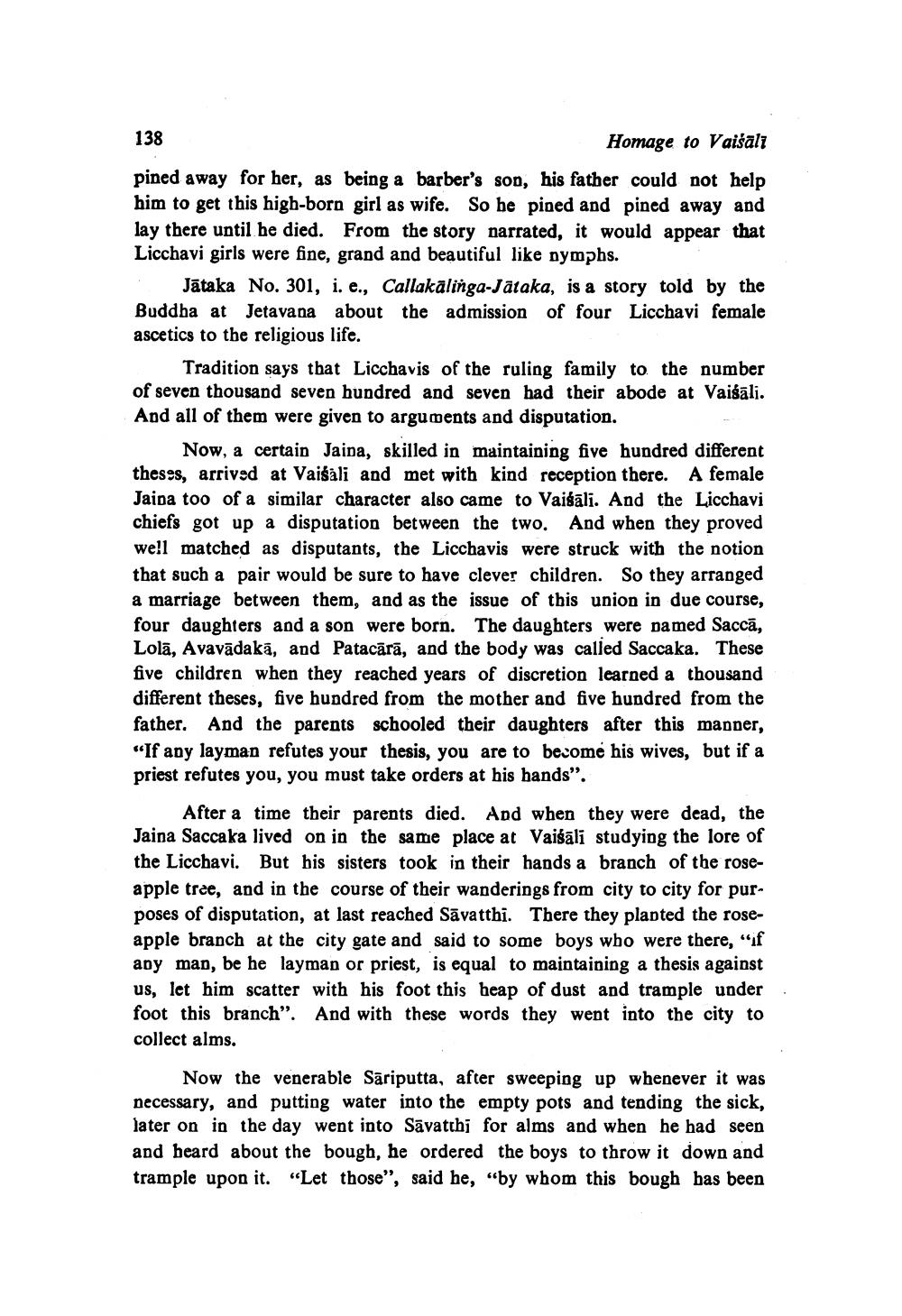________________ 138 Homage to Vaisali pined away for her, as being a barber's son, his father could not help him to get this high-born girl as wife. So he pined and pined away and lay there until he died. From the story narrated, it would appear that Licchavi girls were fine, grand and beautiful like nymphs. Jataka No. 301, i. e., Callakalinga-Jataka, is a story told by the Buddha at Jetavana about the admission of four Licchavi female ascetics to the religious life. Tradition says that Licchavis of the ruling family to the number of seven thousand seven hundred and seven had their abode at Vaisali. And all of them were given to arguments and disputation. Now, a certain Jaipa, skilled in maintaining five hundred different theses, arrived at Vaisali and met with kind reception there. A female Jaipa too of a similar character also came to Vaisali. And the Licchavi chiefs got up a disputation between the two. And when they proved well matched as disputants, the Licchavis were struck with the notion that such a pair would be sure to have clever children. So they arranged a marriage between them, and as the issue of this union in due course, four daughters and a son were born. The daughters were named Sacca, Lola, Avavadaka, and Patacara, and the body was called Saccaka. These five children when they reached years of discretion learned a thousand different theses, five hundred from the mother and five hundred from the father. And the parents schooled their daughters after this manner, "If any layman refutes your thesis, you are to become his wives, but if a priest refutes you, you must take orders at his hands". After a time their parents died. And when they were dead, the Jaina Saccaka lived on in the same place at Vaisali studying the lore of the Licchavi. But his sisters took in their hands a branch of the roseapple tree, and in the course of their wanderings from city to city for pur. poses of disputation, at last reached Savatthi. There they planted the roseapple branch at the city gate and said to some boys wbo were there, "if aoy man, be he layman or priest, is equal to maintaining a thesis against us, let him scatter with his foot this heap of dust and trample under foot this branch". And with these words they went into the city to collect alms. Now the venerable Sariputta, after sweeping up whenever it was necessary, and putting water into the empty pots and tending the sick, later on in the day went into Savatths for alms and when he had seen and heard about the bough, he ordered the boys to throw it down and trample upon it. "Let those", said he, "by whom this bough has been




